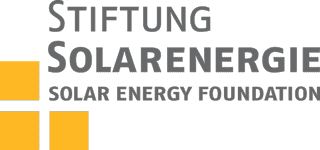Development loan
The loan with the positive side effects

Schools, organisations, farmers or small craft enterprises need a clean and reliable energy supply for their work. In most cases, however, no power grid is available – or the supply is unreliable. This will significantly affect the work. After sunset, productive work is no longer possible. In addition, without power supply, important tools for a productive result are missing, such as solar water pumps or computers.
A major obstacle to the use of a solar power supply is the relatively high acquisition costs. However, this problem can be solved if the solar system can be paid off with a loan (duration 2-3 years).
Small loans instead of donations
Loans to buy a solar system are rarely obtained from local banks or microcredit organizations – or only at exorbitantly high interest rates. One reason for this is the banks’ mistrust in the performance and reliability of solar technology.
Not so long ago, we also had a similar situation in Germany and Switzerland: it took many years of persuasion before banks finally found confidence in solar technology.
With our development loan, we want to change this: In order to promote the dissemination of solar energy beyond donation projects in accordance with our statutes, we provide financial resources to:
- to give a school a loan for the installation of a solar system;
- to enable a farmer to purchase a solar water pump to replace his inefficient and environmentally harmful diesel pump;
- to allow a tailor to work even in the cooler evening hours;
- to allow a livestock farmer to purchase safety lamps to protect livestock from predators.
Our local partner companies
The development loan is dependent on the solar systems being professionally installed and maintained. For this reason, we only use companies from the Sendea network of the Solar Energy Foundation for installation and maintenance. At the same time, we promote local solar companies and secure local jobs.
The positive effects of the loan
The development loan enables the achievement of many social and environmental objectives:
- Environmental protection: the spread of environmentally friendly technologies while replacing kerosene lamps or diesel generators;
- Poverty alleviation: Improved income opportunities, for example in agriculture or small businesses;
- Health: Reduction of diseases caused by kerosene lamps;
- Development aid: creating local jobs and promoting local small business;
- Improved educational opportunities: by providing a reliable power supply to schools;
- Raising awareness: The use of solar energy in different areas of life and work promotes awareness of the possibilities of this technology.
The development loan: development aid without promoting the dependence on donations.
Our current project: MST School in Uganda
Cost of the solar system: 18,000 Euro
Project financing:
- Deposit (10%): 1,800 Euro
- Development loan: term 2.5 years, interest rate 3%
The interest is used to cover the administrative costs of the Solar Energy Foundation.
To support the development loan for the MST school, you have two options:
- Interest-free loan (minimum amount: 2,000 Euro)
- Dedicated donation
Download the detailed information about the MST school here.
Frequently asked questions
The borrower is the non-profit Stiftung Solarenergie. Sendea gGmbH, a wholly owned subsidiary of the Solar Energy Foundation.
The development loan is each used as a separate project budget for of the Stiftung Solarenergie. Sendea gGmbH independent of other activities of the Solar Energy Foundation.
Your money is used on a project-by-project basis, so it always goes to the project for which you want to invest the money.
The small loan is granted by the Solar Energy Foundation to a Sendea partner company for transfer to the customer. In this way, the local Sendea company is obliged to collect the loan and is responsible for proper repayment. At the same time, the respective company forms an individual credit history, which is taken into account in further lending – and can also serve as proof of creditworthiness for later external investors.
We have set the minimum amount as 2,000 Euro.
The minimum term for your project-related capital is three years.
All lenders and donors receive a six-monthly report on the current state of activity and the economic situation.
If you decide to take out an interest-free loan, please fill out the loan agreement and send it to us in two forms signed by post.
You will then receive a copy of the countersigned contract back.Please transfer the loan amount to our account as soon as you are asked to do so by us. We do not need the money until we have received enough commitments.
If you have chosen a dedicated donation (against donation certificate), please transfer the amount to our donation account stating the purpose of use.
Although we can reduce the risks due to our many years of experience, it is necessary to make clear the existing default risks of loans in developing countries. In the worst case, a total loss is possible. The biggest risks include:
- currency risk,in particular by devaluing the local currency against the euro.
We try to reduce the risk by lending mainly in euros and not in local currency.
- Risk of default due to insufficient repayment of the loan by the end customer.
We try to reduce the risk by taking the installer accountable and usually giving ourselves a personal impression of the borrower on the spot.
- Political risks,such as unrest or unclear government regulations on imports, duty relief, installation and sale of solar products
In order to be able to assess this risk seriously, we follow the political and regulatory developments in our partner countries very closely. In addition to our local partner companies, we also use other organisations, such as the GIZ, as a source of information.
For further information I am at your disposal:
Dr. Harald Schützeichel, CEO of Stiftung Solarenergie. Sendea gGmbH
Basler Landstr. 8, 79111 Freiburg
Email: hs@solar-federation.org

